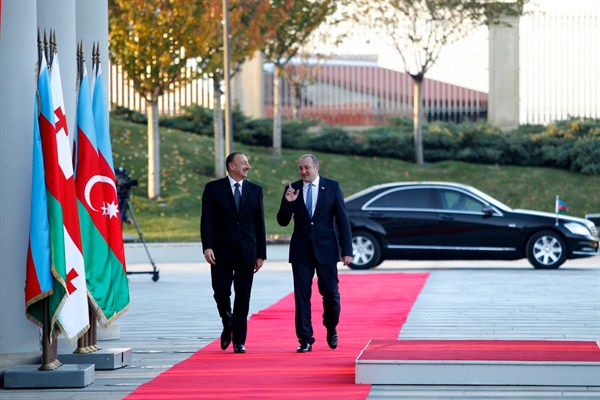In mid-January, Georgian musicians played a concert in front of hundreds of people in downtown Tbilisi to protest the government’s ongoing negotiations with Russian state energy giant Gazprom to increase imports of natural gas. The protests were only the latest in a string of demonstrations going back to last fall, when news of government talks with Gazprom first came to light. According to the Georgian Energy Ministry, its talks with Russia are part of efforts to boost energy supplies amid growing domestic consumption.
The Georgian government’s decision to try and buy more Russian gas has emerged as a full-blown controversy in Tbilisi, where opponents claim that depending on Gazprom for energy only makes Georgia more vulnerable to Kremlin pressure. The Georgian government, to be sure, has opened itself to criticism by needlessly deflecting legitimate questions over renewed energy ties with Russia. However, Tbilisi’s overtures to Gazprom do not represent a rush into Moscow’s notoriously steely embrace, but rather a commendable willingness to prioritize energy diversification over geopolitical acrimony.
Georgia’s newfound interest in Russian gas, unsurprisingly, also appears to have seriously rankled its longtime dominant supplier, Azerbaijan, which provides Georgia with over 80 percent of its domestic consumption—including free gas to a number of Georgian religious institutions. Baku and Tbilisi are also close economic, political and security partners. Yet Georgian officials stress that their talks with Gazprom would not displace Azerbaijani gas, but only supplement it. More gas from non-Caspian sources, however, would ultimately reduce Azerbaijan’s share of the Georgian market—a scenario that Baku appears keen to avoid.

